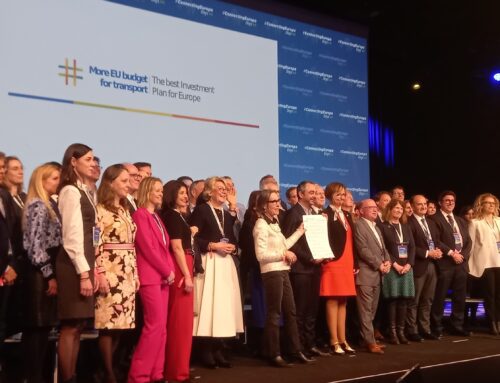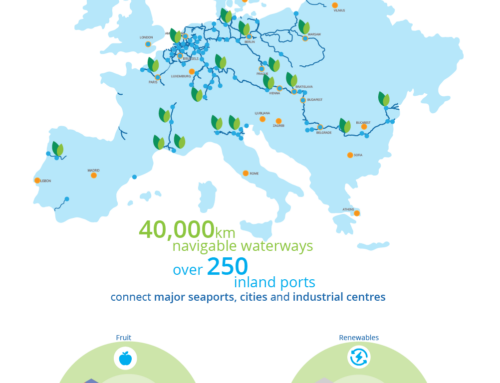Electronic reporting (ERI) has been gradually introduced on the Rhine for vessels or convoys carrying containers by the CCNR since 1 January 2010. The extension of the electronic reporting requirement comes into force with effect on 1 December 2021, with a ‘grace period’. It concerns the vessels and special transports as referred to in Article 12.01(1)(a) and (d) to (h) of the Rhine Police Regulations (RPR) that was approved by the Central Commission at its autumn plenary session 2019.
The electronic reporting requirement provided for in article 12.01 of the RPR, which can be processed today via radiotelephony, in writing or electronically, must be carried out electronically with effect from 1 December 2021. Electronic reporting facilitates data interchange between vessels and sector traffic centres compared with reporting by radio telephony or in writing.
Electronic reporting is integral to River Information Services (RIS) and facilitates:
- strategic traffic-related information,
- traffic management,
- the prevention of accidents,
- statistics,
- the implementation of requirements.
They also reduce the administrative workload for boat masters and inland waterway managers. As such, this is a measure that is helping to modernise inland navigation and promote the use of new technologies. Being aware of the technical difficulties that some boat masters may encounter in complying with the new regulations, the Police Regulations Committee decided, at its meeting on 27 October 2021, to invite the national police authorities to accompany the entry into force of the electronic reporting obligation by a ‘grace period’. Hence, the competent authorities of the Member States will be able to show tolerance on a case-by-case basis during the three months following the entry into force.
Read the full CCNR press-release in:
Source: CCNR website






